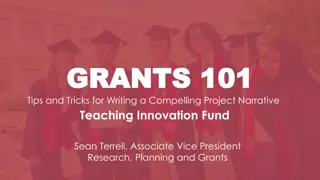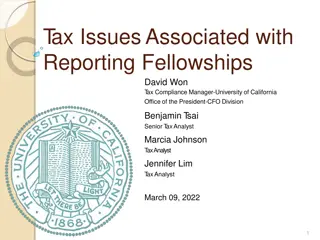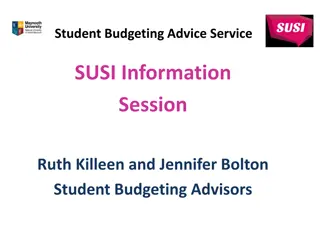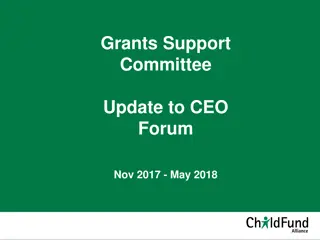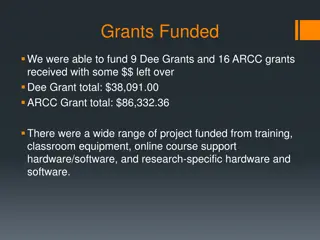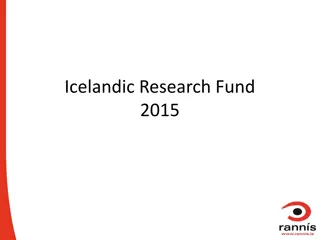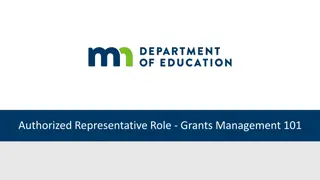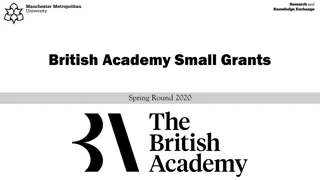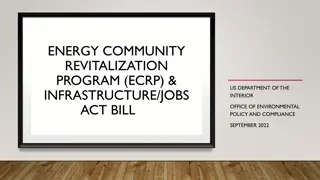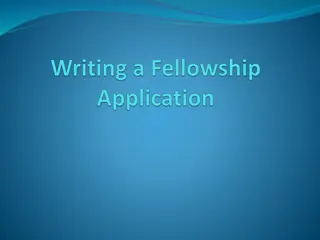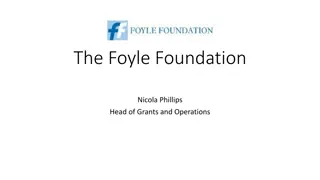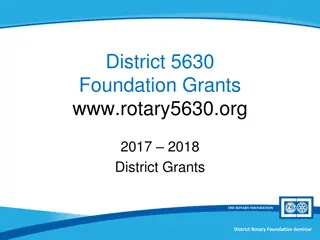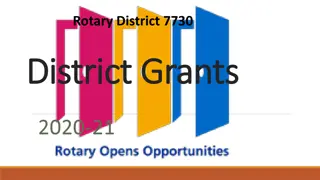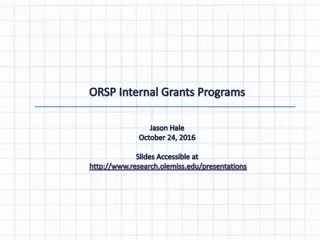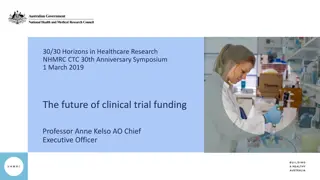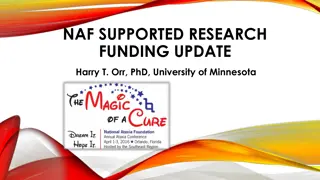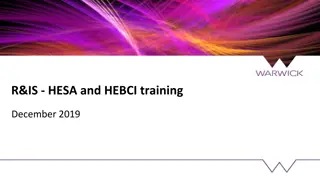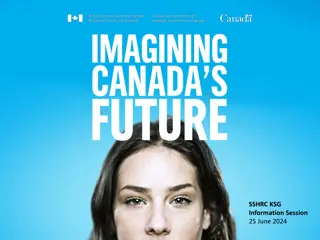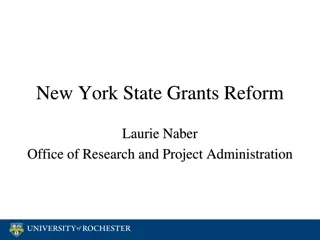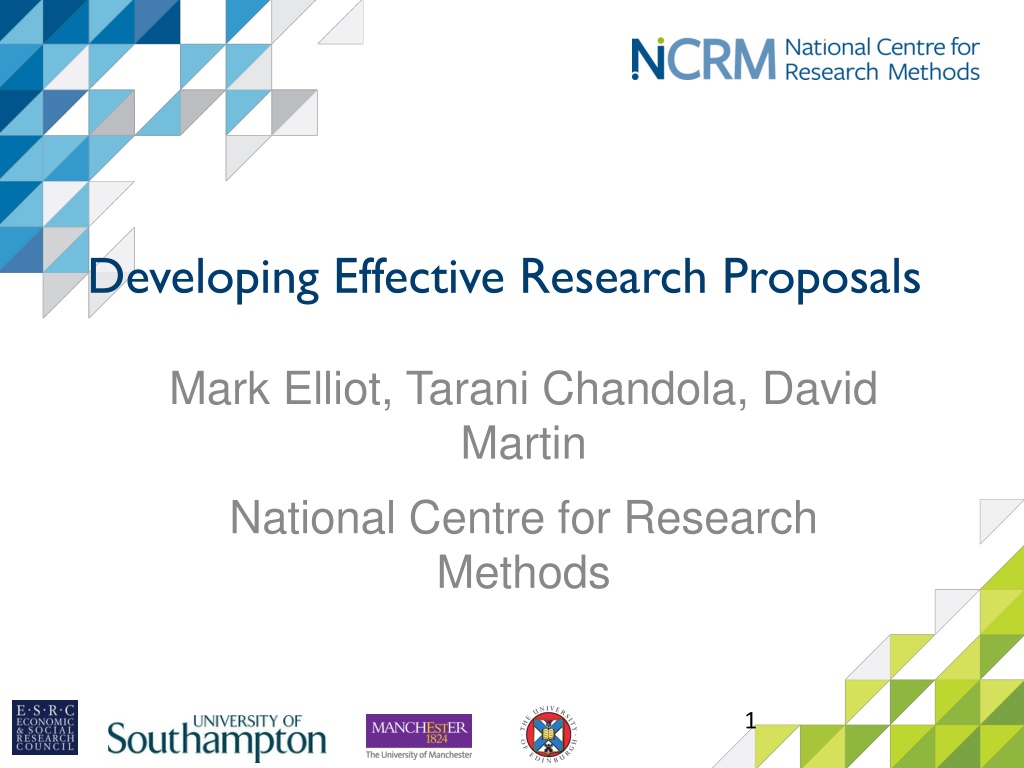
Effective Research Proposal Development Strategies
Discover essential insights from "Developing Effective Research Proposals" by Mark Elliot, Tarani Chandola, and David Martin. Learn how to secure funding, convert ideas into successful grant applications, navigate costing processes, and effectively manage grant opportunities. Explore post-doctoral fellowships and funding opportunities like Leverhulme Trust Early Career Fellowships for career development in academia.
Download Presentation

Please find below an Image/Link to download the presentation.
The content on the website is provided AS IS for your information and personal use only. It may not be sold, licensed, or shared on other websites without obtaining consent from the author. If you encounter any issues during the download, it is possible that the publisher has removed the file from their server.
You are allowed to download the files provided on this website for personal or commercial use, subject to the condition that they are used lawfully. All files are the property of their respective owners.
The content on the website is provided AS IS for your information and personal use only. It may not be sold, licensed, or shared on other websites without obtaining consent from the author.
E N D
Presentation Transcript
Developing Effective Research Proposals Mark Elliot, Tarani Chandola, David Martin National Centre for Research Methods 1
Who we are NCRM Co-directors Mark Elliot, Data Science Methodologist, 37 successful funding bids across 13 funders with a total value of 27.4m. Tarani Chandola, Medical Sociologist, 22 successful funding bids across 10 funders with a total value of 25.1m. 2
Overview Sources of funding How to convert a research idea into a grant application with a good chance of success Who and what you need to know How costings work How the application process works Dos and don ts of grant applications: useful tips Small print: this guidance based on past experience offered in good faith and without guarantees! 3
Out of scope What makes a good research idea Why seek research funding How to manage a grant once you ve got it 4
Funding opportunities Postdoctoral Fellowships Response mode grants Grant calls 5
Post-doctoral fellowships: objectives Time to gear up for a successful academic career To produce publications to help secure a track record & to improve opportunities for long-term employment in the HEI sector To disseminate your research findings to both academic and non-academic audiences To improve research and related skills through specialised training To carry out further research linked to your PhD and through developing proposals for further funding 6
Leverhulme Trust: Early Career Fellowships To provide career development opportunities for people at an early stage of career (5 years from doctorate) but with a proven research record not in an established post 100 fellowships in 2018 2-3 years funding: 50% salary costs, 50% from institution, plus 6K expenses per annum Next round: January 2019 7
ESRC: Postdoctoral Fellowships To provide a career development opportunity for those in the immediately postdoctoral stage of their career, to provide the opportunity to consolidate their PhD through developing publications, their networks, and their research and professional skills. Attached to a DTP or CDT 16 fellowships in 2018 1 years funding: salary costs, plus 10K expenses Next round: March 2019 8
UKRI Future Leader Fellowships To provide career development opportunities for people at an early stage of career (5 years from doctorate) but with a proven research record 150 fellowships in 2018 4 years funding: complex mixed funding model Can be at non-academic organisations Up to 1.5M Next round: September 2018 (two per year) 9
Grants: objectives To carry out a specific defined piece or programme of research
ESRC response mode grants Standard grants Single projects from 350K to 1M, up to five years funding SDAI. ECRs strongly encouraged up to 300K 2 years New investigator grants 100K-300K, must be no more than 4 years after submission of PhD Basic criteria are always: quality, timeliness, track record and value for money 11
Nuffield Foundation: research and innovation projects 7 areas most within social science Up to 350K 100% FEC Two step process: Outline followed by full Next Deadline (outline): 10 October 2016 12
Leverhulme: project grants Up to 500K Direct costs only Two step process: Outline followed by full Next Deadline (full): 1 December 2016 Emphasis on innovation / blue skies / interdisciplinarity 13
Turning a research idea into a grant proposal We assume you already have a great idea Be clear about what will make your application unique Ensure promised outputs are in proportion to the inputs Get all the details of the proposal spot-on A research grant proposal has to combine a small business plan with an academic research paper 14
Programme call Research idea Response mode 15
Programme call Costing Research idea Develop project proposal Response mode 16
Programme call Costing software Costing Online Research idea portal Develop project proposal (J-eS) Response mode 17
Focus of this presentation Programme call Costing software (pfact) Costing Submission Online Research idea portal Develop project proposal (J-eS*) Response mode *To research councils 18
Developing a work plan: Structure Workpackages timescales start and finish dates sequencing of work 19
Developing your work plan: people Who is going to do the work? How much academic direction? What can be done by RAs/tech/admin? 21
Developing your work plan: interactions What are the interdependencies? What are the risks to the project how will you mitigate/manage those risks? Inter-institutional: will take (much) longer! Interdisciplinarity: ditto 22
Other considerations understand Your own University s processes Ethics approval and internal peer review People to warm up at an early stage: Collaborators and/or letters of support? Nominated reviewers? Implications for own workload? If so, discuss early with line manager. ALWAYS follow any funder- and programme- specific rules! 23
Costings: the FEC wonderland FEC = Full economic costing Main driver is academic/research staff time Investigators own time must be costed FEC based on financial analysis of costs to institution staff time + estates +overheads Research councils only currently pay 80% of FEC 24
80% FEC how it works University calculates FEC appropriate to funder FEC goes into application Funder pays <100% costs (RCs = 80%) University income is reallocated to make up Research funding (QR) to university notionally covers the shortfall (the dual support system ) Don t worry about the macroeconomics while writing a proposal stick to the proposal
Costings: homework Make a complete list of what you need Staff, travel, equipment, services, etc. Use own University rates that is how you ll claim Collate staffing details: start and end dates, % time worked, salary points for new staff NB technical/admin = no institutional drivers Get exemplar costs for all travel, equipment etc. and be prepared to justify No general office expenses etc. 26
J-eS Have to be registered first and use annually! Online grant application website for all UK research councils Most elements completed by applicants Approved costings information to be uploaded Need to organize and chase everyone involved: CVs of collaborators and named staff; approvers to be ready on the day, etc. 27
Structure of a J-eS bid Simple questions PI, Co-Is, previous apps, etc. Short text answers (summary, objectives, ethics, impact summary, beneficiaries) NB character counts not the same as Word! Attachments: typically Case for support, applicant CVs, Justification of resources, Bibliography, Letters of support, pathways to impact, etc. All completed in shared online workspace Submission and approval sequence leading to submission to research council 28
Submisson of a J-eS bid All documentation completed Submitted by PI to School/dept. approvers Submitted by School/dept. approver to University approver (usually finance dept.) Submitted by university approver to research council All electronic, but requires chain of people who are expecting it in advance and already know it s OK 29
How the application will be judged Receipt acknowledged by research council registry Checked by office against funding rules and specifics of call Despatched to reviewers and assessors (Sometimes) PI given opportunity to respond Grades considered by commissioning panel, decisions made and ratified Contract negotiated with university The real work begins 30
What the reviewers will be looking for: three blunt questions. Does the applicant know what s/he is talking about? Is there a good narrative between Lit-RQs-methods. Is there any key previous research that has not been referred to?
What the reviewers will be looking for: three blunt questions. Is it clear what the research will be doing? Is the project feasible Are there any methodological issues? Is the timescale achievable? Is the project plan coherent?
What the reviewers will be looking for If the project was successful would I care? First paragraph is important Don t undersell
The Impact agenda RCUK increasingly concerned with societal impacts of research a contested issue, but reflects harsh realities Impact potential should be demonstrated in proposals, by pathways to impact or impact plans Move from knowledge transfer to co-production identify the non-academic users of your research and involve them right from the proposal stage. 34
Do Familiarise yourself with the funding body s strategy and ethos Familiarise yourself with the specific requirements of a funding body and/or specific call Make sure that you are eligible for the scheme for which you re applying (and check with them if you re unsure) 36
Do Start the application process in good time. Plan: writing a proposal is a project it will need a project plan. Draw on other people s expertise Research offices Critical friends 37
Do Make the case for your project directly and strongly why should your project be prioritised (given that it will be in competition with others)? Set out your research questions and objectives clearly (a research proposal is not a literature review; get right the balance of background and proposal). 39
Do Set out your methodology clearly, and flag up where it is cutting edge and interdisciplinary Ensure that methods address the research questions set out Acknowledge awareness of potential problems and possible criticisms of approach chosen Include a timetable for your activities 40
Do Use the bibliography to show up-to-date knowledge of the field Choose an appropriate and reliable nominated reviewer Engage with potential research users Address the issue of impact 41

